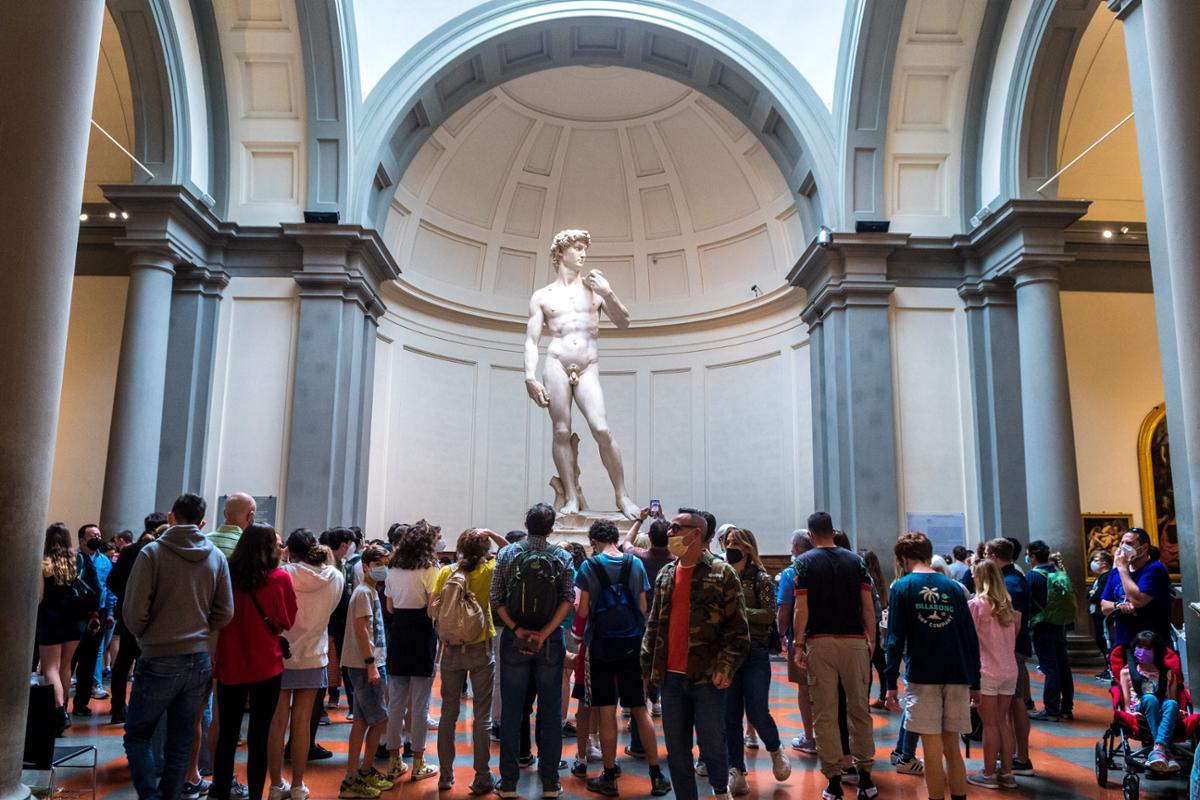see all jobs
Museum director apologises after comparing the city of Florence to a sex worker
Museum director Cecilie Hollberg has come under fire for comparing the city to a sex worker due to uncontrolled mass tourism.
Hollberg, a historian, has been director of the Galleria Dell’Accademia, home to Michelangelo’s statue of David, since 2015.
At a recent event she told reporters “Once a city becomes a prostitute, it is difficult for it to become a virgin again.
“Florence is very beautiful and I would like it to return to its citizens and not be crushed by tourism,” she added, stating further that a lack of shops selling “normal” goods has been to the detriment of the city’s residents.
The gallery director is among a number of officials in Italy who have expressed concern about the impact of unrestricted tourism on both residents and the environment. Both Florence and Venice have seen measures to attempt to calm the flow of people during the high season and protect their status as UNESCO World Heritage sites.
Mayor of Florence, Dario Nardella, condemned Hollberg’s comments, stressing the importance of tourism to the city, which receives nearly 14 million visitors a year and has a tourism industry worth an estimated £2.5 billion.
“Tourism is a resource, it must be managed but there isn't a single issue on which this administration has not fought, from the protection of the historic center via UNESCO regulations, to the protection of typical products, the end of certain activities and the imposition of a rule that stops short-term rentals,” Nardella said.
Former premier Matteo Renzi, a senator for Florence, said Hollberg “should apologise or
resign”.
The gallery later issued a statement in which Hollberg apologised “for having used the wrong words” about “a city that I love. What I meant to say is that Florence must be a witness for all of Italy of an increasingly conscious tourism, not hit-and-run tourism,” she said.
Tourism bosses walk a fine line with overtourism, as Florence’s status as a UNESCO World Heritage site means access must be available to all and it is only when its preservation becomes a risk that access can be restricted.
This means accessibility remains a top priority, despite UNESCO identifying the impact of mass tourism as one of the main threats to the city’s World Heritage status.
More News
- News by sector (all)
- All news
- Fitness
- Personal trainer
- Sport
- Spa
- Swimming
- Hospitality
- Entertainment & Gaming
- Commercial Leisure
- Property
- Architecture
- Design
- Tourism
- Travel
- Attractions
- Theme & Water Parks
- Arts & Culture
- Heritage & Museums
- Parks & Countryside
- Sales & Marketing
- Public Sector
- Training
- People
- Executive
- Apprenticeships
- Suppliers
















































